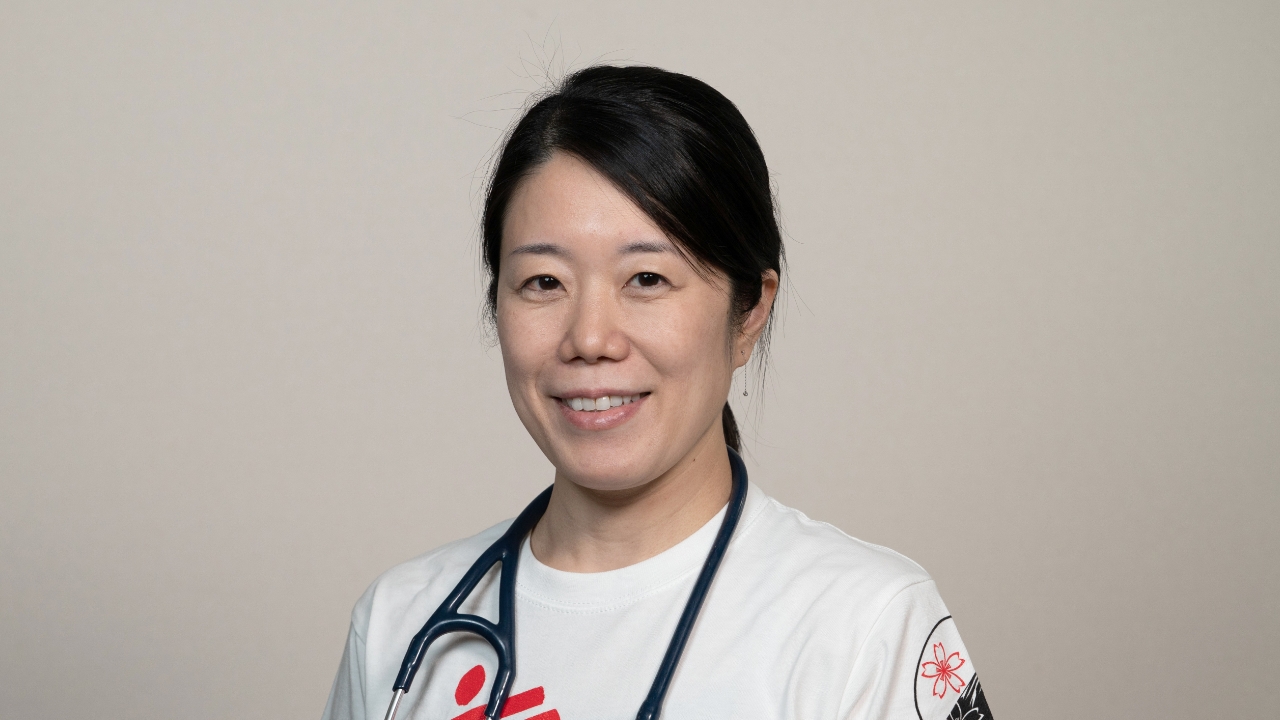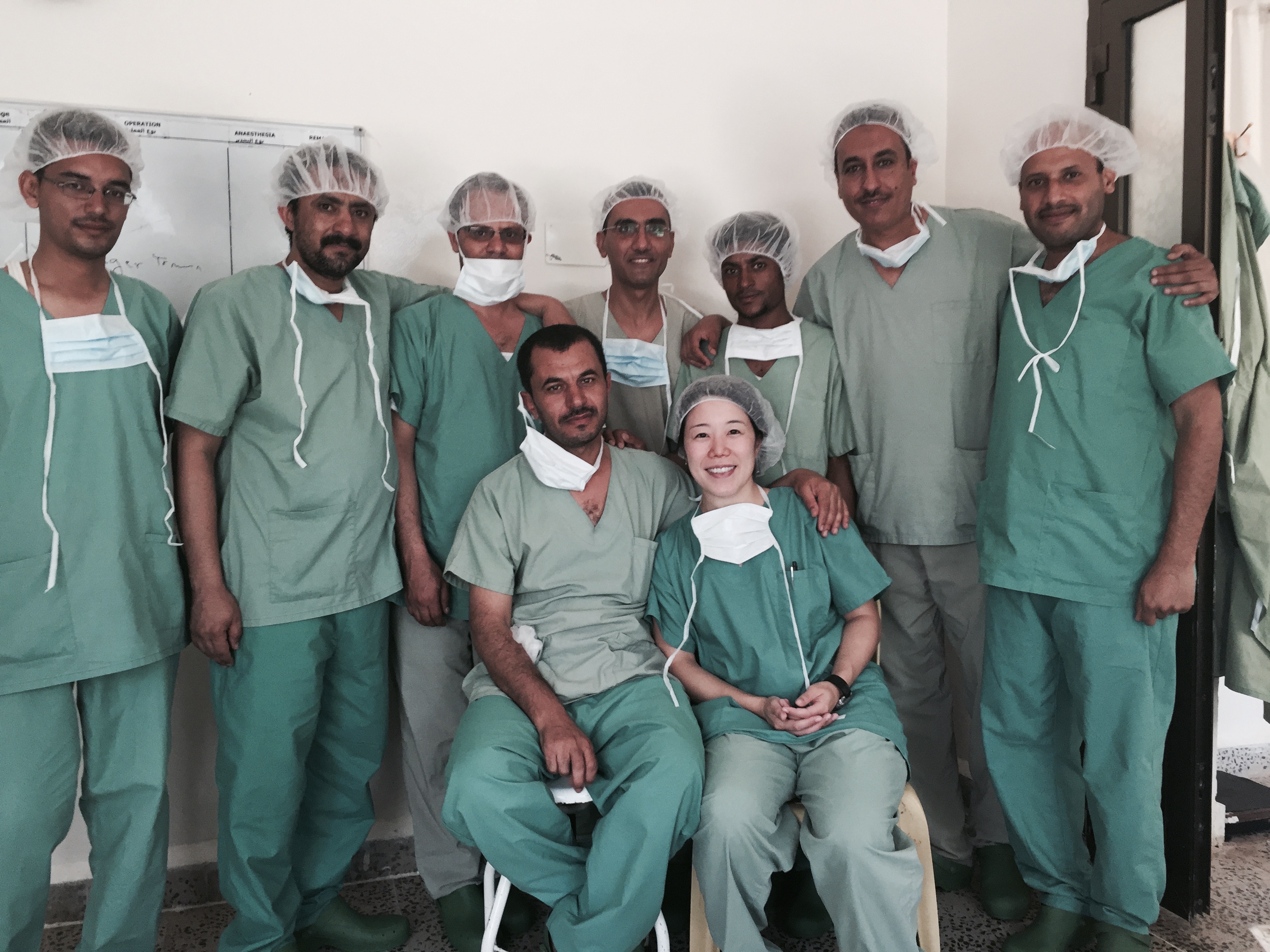
Doctors Without Borders Japan President/Emergency Specialist
Yuko Nakajima
Graduated from Sapporo Medical University. Initial training at Okinawa US Naval Hospital. After working at Urasoe General Hospital, Metropolitan Bokuto Hospital, etc., he passed the U.S. National Examination for Medical Practitioners. Qualified as an emergency physician in the United States. When I was in high school, I admired the activities of MSF, and this is what inspired me to become a doctor. Registered with MSF in 2009. Director of MSF Japan from 2017 to 2020, Vice Chairman from 2019 to 2020, current position from March 2010.
Médecins Sans Frontières (MSF) recruits staff from all over the world and continues to provide humanitarian assistance to areas with insufficient access to medical care, including conflict areas. We asked Ms. Yuko Nakajima, President of MSF Japan, about the benefits of participating in this activity for medical professionals, based on her own experience as well as the actual situation of humanitarian aid activities.
It was in 2009 that I started working with Médecins Sans Frontières (MSF). It was around the time I went to the United States to train as an emergency physician, and I took advantage of the elective period provided during the four-year training period. At MSF, in order to be dispatched to conflict areas, it is necessary to be an independent doctor, so I went to Nigeria, which was my first assignment as an anesthesiologist, which I had already specialized in. Since then, we have been engaged in humanitarian aid in countries in Africa and the Middle East, including Pakistan, Syria, South Sudan, Yemen, and Iraq.
In March 2022, he was elected as President of MSF Japan, representing Japan and Asia at MSF's support strategy meetings. Doing activities is also an important role given to me.
Currently, there are about 300 overseas staff members registered with MSF Japan, and the ratio of medical workers to non-medical workers is roughly 2:1. Doctors account for the largest number of medical professionals (about 100), and the remaining 100 are medical staff such as nurses, midwives, pharmacists, psychologists and epidemiologists. MSF has more than 400 projects in more than 70 countries around the world, many of which are urgent humanitarian aid. About 100 people are dispatched each year from Japan, mainly to Africa and the Middle East, and doctors and nurses stay in more than 30 countries for several weeks to a year to engage in medical activities. Japan has an international reputation for being strong in general surgery, obstetrics and gynecology, orthopedics, plastic surgery, anesthesiology, and other surgical fields. Japanese staff are very useful because they can go to areas where staff from other countries cannot go.
There is no upper age limit for registration with MSF, so not only doctors in their 30s and 50s who are in their prime, but also doctors in their 60s and 70s who use their skills to contribute to humanitarian aid. are not few. Unlike medical settings in developed countries, the countries in which MSF works have limited medical resources and often have to deal with outdated drugs, equipment and equipment. At that time, there are many situations where the training that veteran doctors have received and the skills they have acquired in their youth are useful.
On the other hand, the medical environment, which has various restrictions, is effective in encouraging the responsiveness of young doctors and broadening their horizons. In fact, while working with doctors and medical staff from other countries and facing unforeseen situations, I have further improved my ability to respond. And I realized that my horizons have been widened and the range of medical care has expanded. It is also a valuable opportunity to learn how to use medicines and other medical technologies that are ingenious in each country, and we often learn from each other. For example, the anesthesia method of a French doctor I met in Malawi in Africa was epoch-making for me. It seems to have been a novelty for European doctors. Although it is humanitarian aid, the return that can be obtained in the growth of individual doctors is also large.

In 2015, when I was dispatched to Yemen as an anesthesiologist, I worked with the local operating room staff.
Dispatching medical staff to overseas humanitarian aid activities seems to be effective from the perspective of human resource development, but the reality is that it is difficult to participate in MSF activities while working at a medical institution in Japan. . When some medical staff enter a medical institution, one of the conditions of their employment contract is that they can secure a period of time to engage in humanitarian aid activities. I work at a medical institution in the United States and have signed a similar contract to participate in MSF activities, but I am in the minority in Japan. Because the understanding of the workplace is not obtained, there are cases where people who work part-time contract, participate after retirement, or participate using the period when they change jobs and move to the next workplace.
Few young doctors have the desire to "use the skills I have honed in the medical field in Japan in countries where medical care is not available, and further improve my skills based on the experience and knowledge I have gained by working there." is not. However, they often ask me, "I can't have such an attractive way of working in the medical field in Japan. That's why I want to work in the United States, where there is such a possibility." This leads to the loss of human resources, and I think it is a great waste.
In Japan, work style reform for doctors will begin in 2024. Each medical institution is tasked with promoting task shift/sharing, reducing the burden on doctors, and aiming to expand the scope of work for each occupation. If you introduce a system to secure a period of time, I think that the hopes of young doctors who are motivated to make humanitarian aid activities their own sustenance can also be fulfilled. Supporting such human resources is also beneficial in terms of improving the quality of medical institutions. We ask for your understanding and support for our humanitarian aid activities.